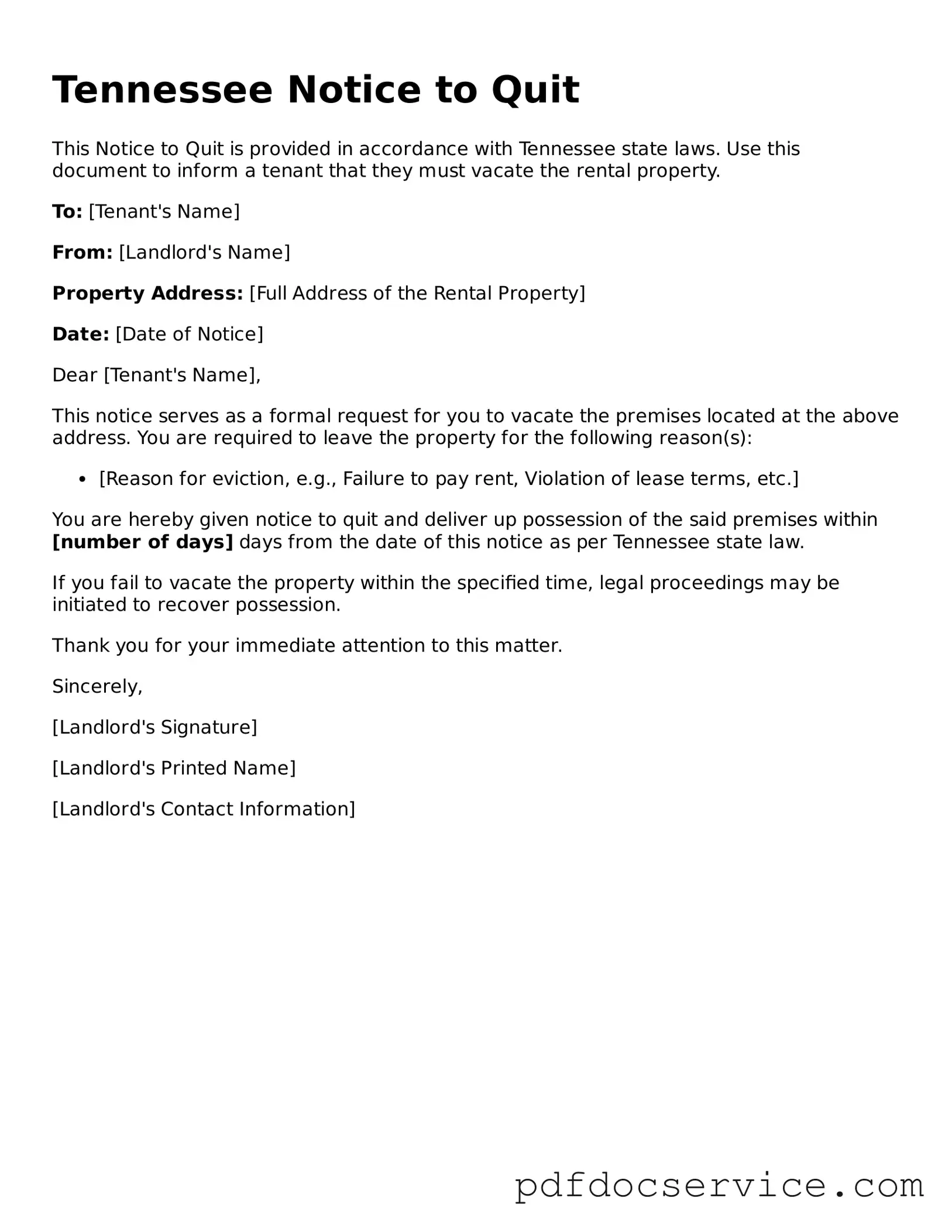Printable Notice to Quit Template for Tennessee
The Tennessee Notice to Quit form is a legal document used by landlords to inform tenants that they must vacate the rental property. This notice typically outlines the reasons for eviction and provides a specified timeframe for the tenant to leave. Understanding this form is crucial for both landlords and tenants to ensure compliance with state laws and protect their rights.
Open Notice to Quit Editor

Printable Notice to Quit Template for Tennessee
Open Notice to Quit Editor

Open Notice to Quit Editor
or
Get Notice to Quit PDF
Finish the form now and be done
Finish Notice to Quit online using simple edit, save, and download steps.